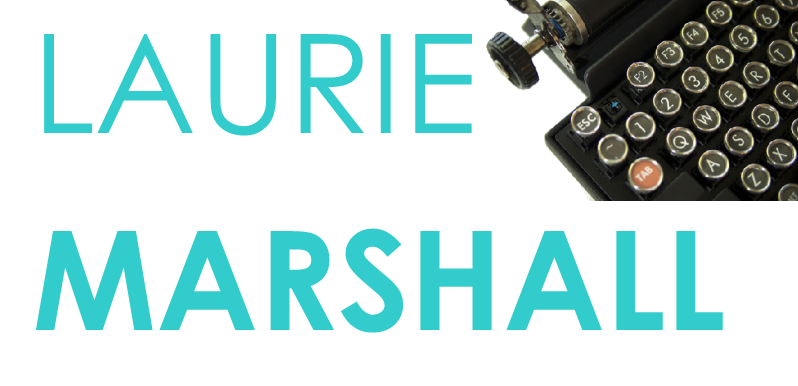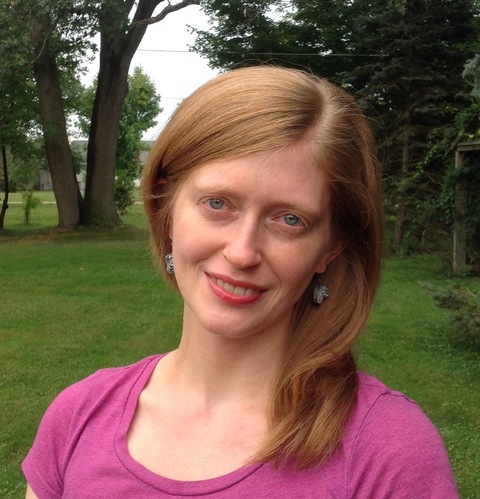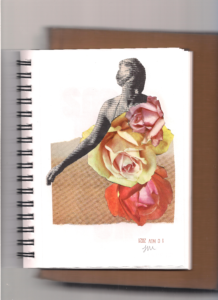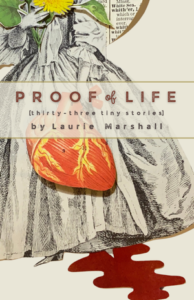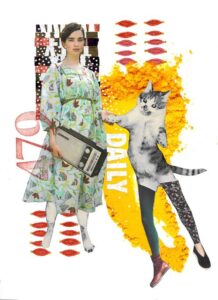When I put the call out on Twitter for women writers over 40 to highlight here, I only heard from one, but as we often hear – it’s not quantity, but quality that matters. That’s definitely the case with new-to-me author, Hadley Moore.
We were just seeing Covid-19 on the horizon when I began this series, so when Hadley reached out she was watching events scheduled to promote her award-winning debut, Not Dead Yet and Other Stories, canceling. In addition to the awards mentioned in our chat below, she also recently learned of two more honors: her book won the Eric Hoffer category prize for short story/anthology and was on the shortlist for the grand prize, and was on the short list for short stories of the Rubery Book Award!
I fell head-over-heels for this short story collection, and I encourage you to grab a copy for yourselves and let it carry you into the rich lives of her captivating characters. But first, Q&A!
Q&A with Hadley Moore
When did you know you were a writer?
I think I am still trying to convince myself. That is, imposter syndrome is ever a challenge. But it’s more background now, less true hindrance.
I am a late bloomer, writing wise, but there were always rumblings. I was an eager reader from early school days, and the classes I loved most as an undergraduate psychology major were in the English department. I took one creative writing class in college, and I can’t explain why it didn’t occur to me for a good long while to keep at it. But eventually it did occur to me, and now I am confident I’ll keep at it as long as I am able.
If writing is a second career, what were you doing before you started writing?
A million years ago I started a Ph.D. program in counseling psychology, and I hated it. I made it through one year. Since then I have had day jobs—mostly editing in various capacities—and none of that work has been the love of my life but it has paid the bills.
I am really glad I stepped to the side of the psychologist path I’d started on; it just wasn’t for me, and I realized I liked the idea of it a lot more than I liked the actual work. It was also during that single year in the Ph.D. that I finally acknowledged what I really wanted to do was write.
A lot of writers aspire to teach, and that’s not for me either. I know of what I speak; I have many educators in my family and among my friends. Teaching is another pursuit I admire but have to be honest it’s not where my strengths and interests lie.
You attended the MFA program at Warren Wilson College – how did the program benefit you most?
I craved some structure, and some peers and mentors. I wanted to be around other people who thought literature was important and were excited to talk about it. I wanted to learn how to revise.
It was intense, and I cried at least once per residency in my little dorm room by myself. But my teachers were excellent and generous, I made important friendships, I learned how to read as a writer and think about craft, and I was set on the path to making a writing life for myself.
Warren Wilson emphasizes process over particular products, which was exceptionally valuable to me. That stance makes the assumption that students will continue to write past the training period the program offers and helps them sustain their work.
Your debut collection, Not Dead Yet and Other Stories, won the Autumn House Press 2018 fiction contest, was longlisted for the 2020 PEN/Robert W. Bingham Prize and earned a 2020 First Horizon Award for debut authors. Has life changed at all since receiving these accolades?
I don’t stay high on any given piece of good writing news for very long. Sometimes I wish I could, but maybe that would end up being distracting. That said, I am profoundly grateful for every publication and every honor or notice I’ve received. Every last thing feels hard won and unlikely. I think there’s this weird pressure to pretend that external encouragement doesn’t matter, or that it shouldn’t—but listen, the truth is that it helps.
Writing has to be the work you would do no matter what, though, because there are long, long stretches of doldrums.
What would you say to writers over 40 who are still waiting for their first acceptance? Any advice? Anything they should NOT do? Or maybe just reassurance that they’re not crazy?
We’re not trying to be ballerinas or elite athletes; it isn’t the type of thing you have to start when you’re eight years old or there’s no hope for you. In my MFA there were students in their twenties and students in their sixties, and everyone was serious and taken seriously. It honestly does pain me sometimes to acknowledge I wish I’d started earlier, but I didn’t, and I can’t spend a ton of energy on regret or I’ll drain energy from the work. Most writers I know are neurotic, and this is OK! It is normal. Accept that, accept that you may have regrets, and do your work.
Who are some authors who inspire and challenge you, both as a reader and a writer?
There are many, many. I’m finally reading the third book, The Mirror and the Light, of Hilary Mantel’s Thomas Cromwell trilogy, and I don’t know how she does it; this work is so deeply thought through, so deeply researched, and gorgeous at the sentence level. When I’m done I think I’ll finish reading the rest of her oeuvre. I’ve read some of her other books, but not all.
I like to do that—read all of a writer’s work. For example, I think I’ve read all of James Baldwin, all of Shirley Jackson. It’s super interesting to study their full progression and their range that way.
They tell us to “write what we know”. What do you know?
I know what it is to be a human being. Beyond that it’s imagination and research. Many of my characters outwardly have very different lives from mine, and I do work hard to imagine those deeply. I also don’t necessarily shy away from material whose details I have no familiarity with. Writers can have strange and varied Internet search histories—mine includes multiple medical conditions (a struggle sometimes as I am extremely squeamish), facts about termites, what car seats and drunk driving laws were like in the 1950s, details of geography, the likely prices of street marijuana, and lots more. I think it’s important to get verifiable facts right (if verisimilitude is what you’re aiming for; sometimes it’s not) because such mistakes can be distracting.
What’s your “writing process”?
I like to have more than one active project. It’s helpful to be able to make progress on something when I might be stalled elsewhere. I didn’t conceive of the stories in Not Dead Yet as hanging together until I was drafting the last one. But one of my active projects now does have a theme organizing the stories that comprise it. So, the process and the intention can be different project to project.
I don’t use prompts. I think they can be sort of interesting to read, but I’ve never gotten a useable idea this way. The ways ideas come are a mystery in many instances, and I’m not someone whose brain is churning with them. The generative process that’s worked for me most recently was to sit with books and stories I’ve found to be particularly memorable, and read with a pen and notebook out, jotting scraps of ideas or lines as they were inspired by the work of others.
Everyone is different, and it took a while to learn what works best for me. For example, I used to write in the evenings, after work, but it was making me miserable as a natural morning person, so I shifted my day to get up very early to write. This has made a huge difference.
How is your process different for short stories vs. a novel?
It isn’t that different: hit upon an interesting, resonant idea; woolgather for a while; write some notes; start drafting; go back to writing notes when I get stuck; get back to the draft; and so on. It’s iterative and inefficient. I wish it weren’t, and I have to constantly remind myself that writing a book is not a straight line for anyone. (If it is for someone out there, I don’t want to hear about it.) I am what we used to call “left-brained”: I crave order, I loathe chaos, I love linearity, so there is constant tension. I’m better now at living with it than I once was.
The stories in Not Dead Yet don’t hesitate to spotlight uncomfortable thoughts and behaviors, and then kind of spend time picking at the scab around them, just for good measure. How did you find your way to that kind of storytelling?
I feel relieved by honesty and truth-telling. And, well, sometimes life is scabby and we humans pick at our scabs. It’s not usually healthy or productive, but we do it. And I have compassion for my characters while they’re engaging in self-destruction. I’m not after violence or abuse or addiction or grief for its own sake; I’m not after prurience. I think that being clear-eyed about the full picture of our humanity makes for good fiction, and it’s definitely an element I look for in my reading life as well.
Do you have a favorite story in the collection? Were any harder to write than others? Or easier?
I don’t name favorites, but yes, some were harder to write than others. I can’t explain why, and I never have any sense when I start something new whether the drafting will go relatively smoothly or whether I’ll have to pass through hell for it. It truly is a mystery. I wish I could engineer an easy and pleasant time for myself in all instances, but I think that is likely a pipe dream.
Having finished difficult projects provides a helpful reminder, though. I can point to those for encouragement.
Tell me about your writing community. Do you have a group you spend time with (book club, writing group, etc…) or are you pretty solitary?
I’m almost entirely solitary. This suits me personality wise, but it’s true that sometimes the writing life can feel like an echo chamber. I have a coterie of writing pals scattered around the country whom I check in with from time to time. I also talk to my husband a lot about the writing process, and he is always my first reader. He’s not a writer, but he’s a careful reader, and he works in the arts too—he’s a choir teacher—so we have mutual appreciation for each other’s artistic pursuits.
You’re working on a novel and another collection – can you share anything about those yet?
One project is shaping up to be stories linked thematically by some focus on the assassinations of the 1960s. Another is a novel manuscript that’s sat in a file for a while. And I recently started something else whose shape I can’t entirely see yet and that I am trying not to put pressure on. It might turn out to be a novel. I don’t know. I’m holding it gently.
What’s your favorite way to “cleanse your palate” when you need to step away from the page for a bit?
Reading, of course, is a good way to stay engaged while letting one’s own work cool off. But I also like doing something completely different: scour the bathroom, weed the flower beds. And while I like to bring a notebook with me on trips to catch ideas, I don’t write on vacation either. (I hope I’ll have a trip to not write on again someday…)
Coffee or tea? What kind of milk?
Both. Oat milk in coffee, and plain green tea.
****
You can learn more about Hadley on her website, and follow her on Twitter to hear more about her writing adventures.


